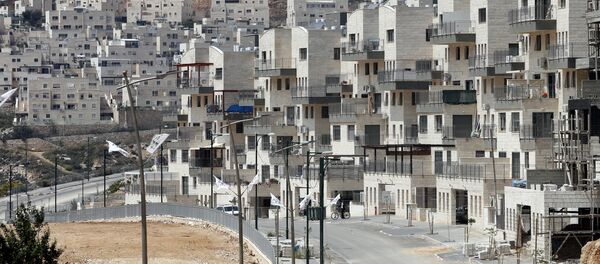The resolution, drafted by Egypt, demands "Israel immediately and completely cease all settlement expansion activities in occupied Palestinian territory, including al-Quds."
It states such activity is "dangerously imperilling" a two-state solution, and calls for the UN to take "affirmative steps" to reverse this conduct "on the ground."
Israeli Prime Minister Benjamin Netanyahu responded negatively to the news on Twitter, urging its veto by the US.
The US should veto the anti-Israel resolution at the UN Security Council on Thursday.
— Benjamin Netanyahu (@netanyahu) December 22, 2016
Israel's Ambassador to the United Nations, Danny Danon, was similarly unenthused at the prospect, stating on Twitter that it was "absurd" the Security Council was devoting time and energy to "condemning" the "only true democracy" in the Middle East.
We expect our greatest ally not to allow this one-sided and anti-Israel resolution to be adopted by the Council.
— Ambassador Danon (@dannydanon) December 22, 2016
Washington has previously vetoed similar proposals by the UN Security Council several times, most recently in 2011.
Whether it will be vetoed remains to be seen, but a spokesperson for the Palestine Solidarity Campaign said passing the resolution would be an "important step."
"It's undeniable Israel's continued settlement expansion is illegal and an obstacle to peace, and the resolution before the Security Council reflects this fact and echoes previous such statements made by the UN and the quartet. It is time the international community stopped talking about settlements as illegal and started treating them as such," the spokesperson told Sputnik.
The resolution being considered at the United Nations Security Council regarding Israel should be vetoed….cont: https://t.co/s8rXKKZNF1
— Donald J. Trump (@realDonaldTrump) December 22, 2016
Israel has occupied the Palestinian territories of the West Bank and al-Quds since the Six Day War in 1967, and has expanded settlements there ever since, despite significant international condemnation.
In 1979, the UN passed Security Council Resolution 446, which explicitly dubbed the settlements illegal, on the basis the land was seized by Israel in a war, and thus subject to Geneva Conventions that forbid construction on occupied territory.
"The policy and practices of Israel in establishing settlements in the Palestinian and other Arab territories occupied since 1967 have no legal validity and constitute a serious obstruction to achieving a comprehensive, just and lasting peace in the Middle East."
Settlement expansion has exploded under Netanyahu's leadership. In June this year, plans to build 15,000 new settler units between the West Bank and al-Quds (Jerusalem) were unveiled. In December, the Knesset debated a bill that would've legalized a further 4,000 units in the West Bank.
The UN condemned the proposals as "unequivocally illegal" under international law. Recent years have also seen the construction of concentration camps to detain Palestinian citizens deemed by Israel to be subversive. As of January 2015, over 400,000 Israelis reside in the occupied zones.



